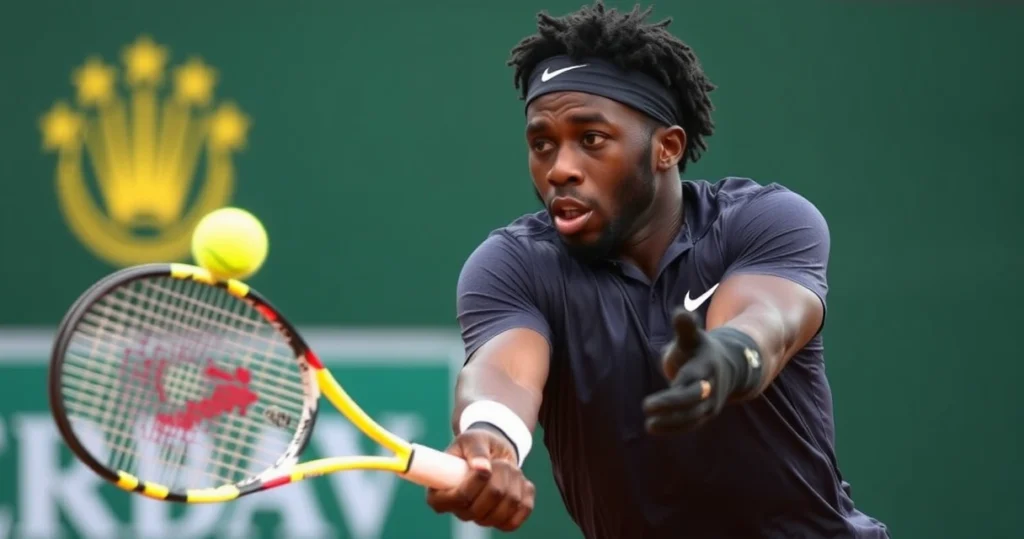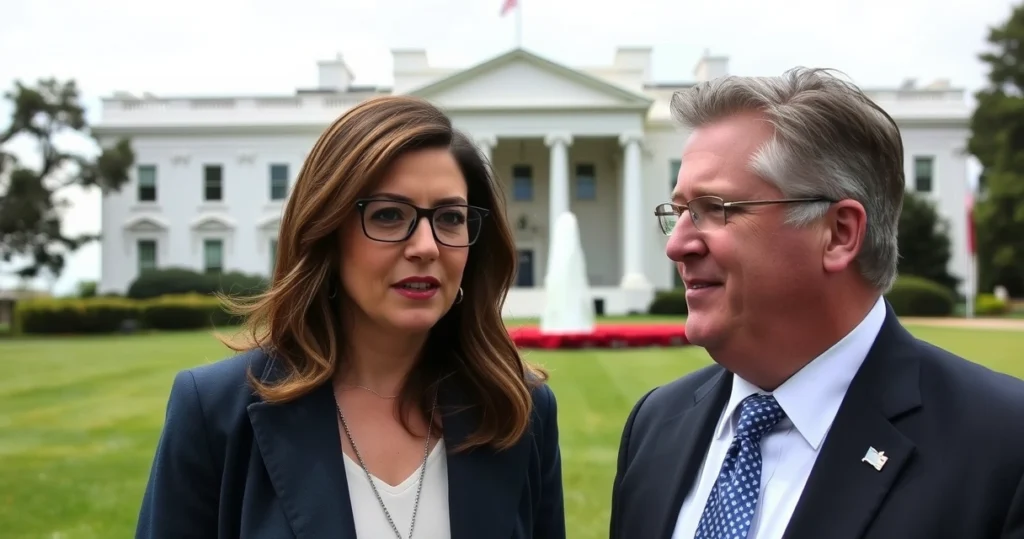Trump Retains Control of LA National Guard Amid Protests and Controversy
In a surprising move, former President Donald Trump has retained control over the Los Angeles National Guard (LA National Guard), amidst ongoing protests and significant controversy. This decision, which has sparked debate among city officials, state leaders, and citizens alike, comes as the nation grapples with issues surrounding civil rights, law enforcement, and the role of military power in domestic affairs. As protests continue to sweep across Los Angeles, many are questioning the appropriateness of deploying troops in response to civil unrest.

In this article, we will explore the implications of Trump’s troop deployment, the reactions from local and state officials, and the broader context surrounding the protests in Los Angeles. We will also provide an overview of the legal and political ramifications of this significant decision, aiming to give readers a comprehensive understanding of the situation.
The Context of the Protests in Los Angeles
The protests in Los Angeles have been fueled by a combination of factors, including growing public dissatisfaction with police practices, racial injustice, and the broader national conversation on systemic inequality. These protests have included a diverse array of voices demanding change and accountability within law enforcement.
Historical Background of Protests in LA
Los Angeles has a long history of protests, particularly concerning issues of race and police brutality. From the Watts riots in 1965 to the Rodney King protests in 1992, the city has often found itself at the center of social movements. The current wave of protests is seen as an extension of this ongoing struggle for justice and equality.
Trigger Events Leading to the Recent Unrest
The recent protests were triggered by several high-profile incidents involving police violence, which have reignited public outrage. Activists have taken to the streets, demanding systemic reforms to policing practices and a reevaluation of law enforcement’s role in society. The atmosphere has been charged, leading to both peaceful demonstrations and instances of violence and vandalism.
Trump’s Deployment of the LA National Guard
In response to the escalating tensions, Trump made the controversial decision to deploy the LA National Guard to assist local law enforcement during the protests. This move has raised concerns among city officials and California Governor Gavin Newsom, who have expressed their objections to the military’s involvement in civilian affairs.
Rationale Behind the Deployment
Trump’s administration justified the deployment by citing the need to maintain order and protect property during a time of civil unrest. Officials argued that the presence of the National Guard would help to deter violence and prevent further escalation of the protests. However, many critics view this as an overreach of federal power, arguing that such actions could exacerbate tensions rather than alleviate them.
Objections from Local Officials and the Governor
California Governor Gavin Newsom and several Los Angeles city officials have voiced strong opposition to the deployment. They argue that the use of military force in civilian protests is not only unnecessary but could also lead to increased violence and further alienation of communities. Newsom emphasized the importance of local governance and the need for community-led solutions to the issues at hand.
Legal and Political Ramifications
The deployment of the LA National Guard raises important legal questions regarding the limits of presidential power and the role of the National Guard in domestic affairs. The Posse Comitatus Act, which restricts the use of federal military personnel for domestic law enforcement, comes into play here, leading to discussions about the legality of Trump’s actions.
Understanding the Posse Comitatus Act
The Posse Comitatus Act was enacted in 1878, primarily to limit the military’s ability to engage in domestic law enforcement. However, there are exceptions that allow for the National Guard to operate under federal command in certain situations. Legal experts are divided on whether Trump’s deployment violates this act, and the situation raises questions about the balance of power between federal and state authorities.
Political Fallout
The political landscape surrounding this issue is fraught with tension. Many Democrats and civil rights advocates are using Trump’s actions to galvanize support for their causes, arguing that it reflects a broader pattern of authoritarianism. Meanwhile, some Republicans claim that the deployment is a necessary measure to uphold law and order. As the situation unfolds, it is likely to have lasting implications for both local and national politics.
The Public’s Reaction: Support and Opposition
The public’s response to Trump’s decision has been polarized. Supporters argue that the presence of the National Guard is necessary to maintain peace and protect businesses during a time of unrest. They believe that a strong show of force may prevent further violence and restore order.
Voices of Support
Those in favor of the deployment have pointed to instances where protests have turned violent, arguing that the National Guard’s presence could be a deterrent. Many business owners, particularly in areas heavily affected by looting and vandalism, have expressed their support for the troop deployment as a necessary measure to protect their livelihoods.
Voices of Opposition
Conversely, opponents of the deployment, including activists, community leaders, and several legal experts, argue that militarizing the response to protests is not the solution. They contend that such actions can lead to further escalation of violence and undermine the legitimacy of peaceful protests. Many fear that the use of military force could result in unnecessary confrontations between protesters and troops, exacerbating an already tense situation.
Key Takeaways
- Trump’s deployment of the LA National Guard has sparked significant controversy and debate in California.
- Local officials and Governor Gavin Newsom have voiced strong objections to the military’s involvement in civilian protests.
- The Posse Comitatus Act raises legal questions about the limits of federal military power in domestic affairs.
- The public response to the deployment has been sharply divided, reflecting broader national tensions regarding policing and civil rights.
- The outcome of this situation could have lasting implications for local and national politics, particularly in the lead-up to future elections.
Frequently Asked Questions (FAQ)
1. Why did Trump deploy the LA National Guard?
Trump deployed the LA National Guard to maintain order and protect property amidst ongoing protests and civil unrest in Los Angeles, citing the need for a strong response to violence.
2. What objections have been raised by local officials regarding the deployment?
Local officials, including California Governor Gavin Newsom, have expressed concerns that deploying military personnel could escalate tensions and undermine community-led solutions to the issues at hand.
3. What is the Posse Comitatus Act, and how does it relate to this situation?
The Posse Comitatus Act restricts the use of federal military forces for domestic law enforcement. The legality of Trump’s actions is being questioned in light of this act, as it raises issues about federal overreach.
4. How has the public reacted to the deployment of the National Guard?
The public’s reaction has been polarized, with some supporting the move as necessary for public safety, while others view it as an inappropriate militarization of the response to protests.
5. What are the potential political implications of this situation?
The situation could have significant political ramifications, influencing public opinion and the political landscape as the nation approaches future elections, particularly regarding issues of policing and civil rights.
Conclusion
The decision by Trump to retain control of the LA National Guard amid protests and controversy has sparked a heated debate about the role of military power in domestic affairs and the appropriate response to civil unrest. As the situation continues to evolve, it is crucial for citizens to remain informed about the implications of these actions and to engage in discussions about justice, equality, and the future of policing in the United States. The ongoing protests in Los Angeles serve as a reminder of the urgent need for meaningful dialogue and reform in addressing the systemic issues that have led to widespread dissatisfaction and calls for change.
📰 Original Source
Este artigo foi baseado em informações de: https://www.bbc.com/news/articles/c1e07nd7x17o


